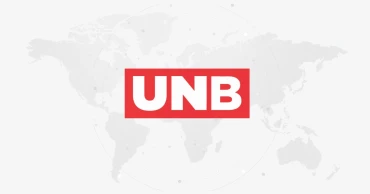for Energy, Power and Mineral Resources
Hamid says fuel prices to fall in line with global market
Fuel prices in Bangladesh will fall in line with prices in the international market, State Minister for Energy, Power and Mineral Resources Nasrul Hamid said Saturday, in the aftermath of the shock move to hike the prices of diesel and kerosene by Tk15 - over 23 percent - in one go.
The state minister could not say however, when that might happen, since price movements in the international market are dictated by market forces.
The IMF in its official blog does not expect the current surge in energy prices to ease until next year.
READ: PM monitoring situation over fuel price hike: Quader
"Our expectation is that these prices will revert to more normal levels early next year when heating demand ebbs and supplies adjust," said the blog post authored by Andrea Pescatori, Chief of the Commodities Unit in the IMF Research Department.
Hamid, speaking from Glasgow, tried to justify the hike by pointing out the government has also cut fuel prices in the past, in line with falling prices internationally at the time. “Fuel prices were cut in 2016. Now fuel prices have been readjusted with the hike in global prices and to prevent smuggling,” he said in a views-exchange meeting with reporters in Glasgow, where he is part of the Bangladesh contingent at COP26. The State Minister said the government refixed the prices of diesel and kerosene on November 4 in the greater national interest, and pointed out the diesel price is still lower than in some neighbouring countries, according to a PID handout. “Today (Nov 6) diesel price in India’s Kolkata is Rs 89.79, equal to Tk 104 per liter. The number of trucks entering the country everyday through the 26 land ports is also a matter of consideration. There is a possibility of fuel smuggling.” “We have to go for electric vehicles. If public transports could be made to run on electricity, it will be environment-friendly. These will reduce spending on importing fuel,” he added. The government raised the prices of diesel and kerosene to Tk 80 from Tk 65 at the retail level last Wednesday - a rise of more than 23 percent in one go.
An exceptionally rapid global economic recovery from the COVID-19 pandemic-induced recession has seen global gas, coal and electricity prices rise in recent weeks to their highest levels in decades.
Natural gas prices have seen the biggest increase, according to the International Energy Agency, with European and Asian benchmark prices hitting an all-time record last week – around ten times their level a year ago at the height of the pandemic.
READ: Govt’s logic behind fuel price hike ‘unacceptable': Fakhrul In a statement, the Ministry of Power, Energy and Mineral Resources said, "Bangladesh Petroleum Corporation (BPC) has been incurring a loss of Tk 20 crore per day as it is selling each liter of diesel at Tk 13.01 lower than the import price, and each liter of furnace oil at Tk 6.21 lower than the import price." As such, it said the retail prices were being adjusted in line with the surging energy prices on the international market. The association of bus, truck and van owners went on an indefinite strike from Friday in protest against fuel price hike.
4 years ago

